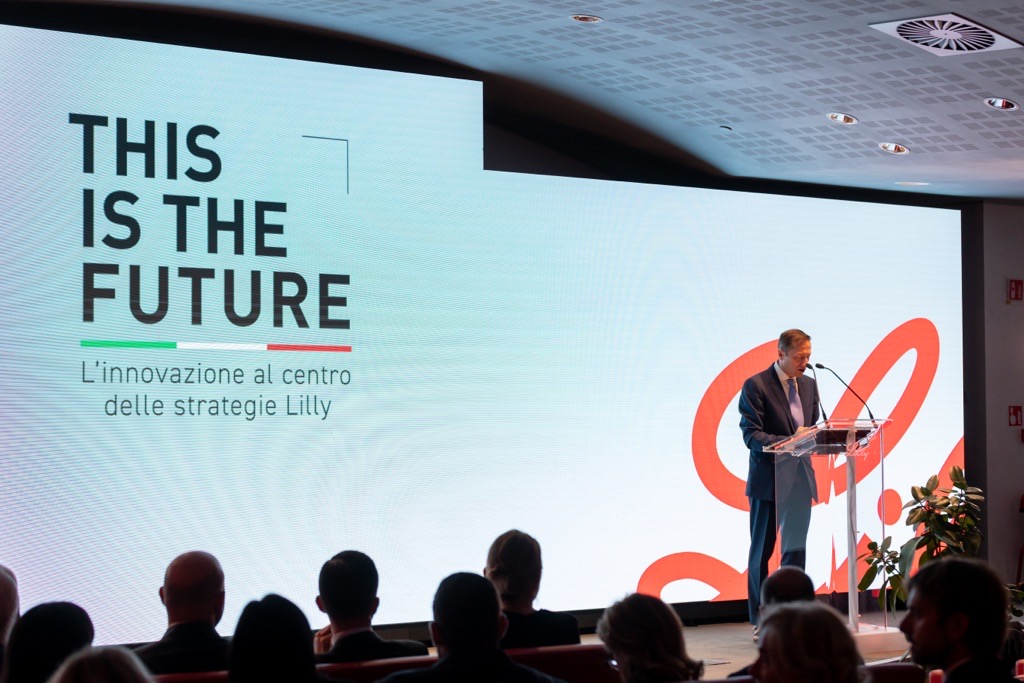The pharmaceutical industry develops medicines that touch all of our lives. That is made possible through industry investment in science and research that underpins the development of innovative new treatments.
Now, a major package of reform being considered by the European Parliament is providing a generational opportunity to create a robust, effective, and agile health ecosystem that can benefit patients across Europe.
It is an opportunity that Ilya Yuffa, Executive Vice President, and President of pharmaceutical company Eli Lilly and Company believes cannot be wasted. He has seen first hand the enormous difference that the medicines produced by Lilly have made to lives across Europe. But when we speak his focus is less on the historical achievements of the sector and more on the impact it can make on the growing health challenges that lie ahead.
Solving those challenges, Yuffa explains, will require investment in innovation that can unlock new treatments capable of tackling growing illnesses such as diabetes, obesity, and Alzheimer’s.
“If you don’t have innovation then you don’t meet the needs of human health,” he tells The Parliament. “We have a shared common objective, which is to ensure that people across the globe get access to innovative therapies and better treatments for their conditions that can help them live better and live longer.”
Central to that shared objective is fairness. Industry, policymakers, and regulators are united by a belief that everyone across the European Union should be able to access the most modern and effective treatments for their conditions.
However, in recent years, this has been a growing challenge with shortages of many generic drugs and unequal access to new treatments depending on which Member States people live in. Yuffa believes that the industry has been proactive in taking steps that ensure that new treatments are available to patients as quickly as possible.
“As a company, and as an innovative industry through EFPIA, we have pledged and are committed to filing for pricing and reimbursement across EU27 as soon as possible,” he tells us. “That means that patients can have access to new treatments within two years of a central marketing authorisation, provided that local systems allow it.”
 Lilly Kinsale manufacturing facility near Cork, Ireland. The Lilly Kinsale manufacturing site includes a 26-acre solar farm providing approximately 9GWH (c.15%) of the site’s purchased electricity.
Lilly Kinsale manufacturing facility near Cork, Ireland. The Lilly Kinsale manufacturing site includes a 26-acre solar farm providing approximately 9GWH (c.15%) of the site’s purchased electricity.
Yuffa believes that current difficulties in both supply and access are indicative of a broader set of issues around how medicines are licensed and made available across the 27 Member States. This, he says, requires further urgent and coordinated action.
He tells The Parliament that this is just one example of how leading pharmaceutical companies like Lilly are playing their part, both as strategic and delivery partners. However, he is equally clear that the EU, individual states, and regulators also share the responsibility to ensure that the most effective medicines and treatments are as widely available as possible.
“To improve access there are two things that Europe can do,” he explains. “From a regulatory perspective, the EMA can get faster at approving medicines. Then, to make sure those treatments are available, we can work with Member States to tackle the barriers to access that exist at a national level.”
The data supports Yuffa’s view that delays in approvals are impacting the ability of patients to benefit from effective new treatments, particularly compared to other territories. In 2021, 71% of new medicines approved in the US by the Food and Drug Administration (FDA) went through expedited reviews. In contrast, only 9% were fast-tracked by the European Medicines Agency (EMA). Those delays are not simply an issue for businesses like Lilly. They are ultimately impacting on the quality of life and longevity of citizens across Europe.
Despite frustration with processes that are slowing access for European citizens, Yuffa remains optimistic that there is a strong foundation in Europe that provides enormous potential to unlock innovation and deliver better health outcomes.
 Ilya Yuffa announcing Lilly's new €750 million investment plan at Lilly’s Sesto manufacturing facility just outside Florence. For 2024-25 it will contribute to more than 6,000 jobs.
Ilya Yuffa announcing Lilly's new €750 million investment plan at Lilly’s Sesto manufacturing facility just outside Florence. For 2024-25 it will contribute to more than 6,000 jobs.
“Europe can be a good ecosystem for investment,” he tells The Parliament. “We put more than 25% of our revenue back into research. And we’re now in a position where we’re building out capacity production wise to meet the needs of those medicines. And so we’ve invested in France, Italy and announced a large investment in Germany. We believe that Europe can go in the right direction and when innovation comes forward, everybody wins.”
However, tapping into that potential demands new relationships where the pharmaceutical industry is engaged not just as a delivery partner, but as a strategic collaborator that brings insight, knowledge, and resources to support the delivery of policy objectives.
Those new relationships can form the basis for dialogue essential to address the barriers that are currently impacting on the competitiveness of Europe compared to other markets. Those barriers include ensuring that environmental regulations are proportionate to the benefits new medications bring and removing uncertainty and the weakening of Intellectual Property (IP) which is stifling investment and undermining Europe’s life-sciences ecosystem.
Yuffa also identifies actions that can be taken to shorten supply chains to ensure that medicines are more readily available. He tells us this could deliver greater resilience and help ensure that patients can access the vital medicines that they need. That requires what he terms a “coalition of partnerships” and routes for the industry to contribute to shaping the wider ecosystem and strategy that will ultimately benefit patients.
“Part of the challenge is around looking ahead,” he explains. “To identify where you need to invest to modernise the healthcare system and the supply chain. That can create an ecosystem where you aren’t reliant on any one manufacturer or country for innovation, production, and supply.”
But Yuffa believes that by working with industry, the European Union, regulators, and Member States, there is an opportunity for science-led innovation to grow sustainably. More importantly, he believes that enhanced joint working would accelerate the development and availability of new medicines, giving everyone fair access to potentially life-saving treatments.
“There’s an opportunity for us to create a set of shared objectives that deliver on human health and economic prosperity for Europe,” he tells us. “We are very open to having that discussion. The fundamentals are there, we just need to find a path forward.”
In partnership with

This article was produced in partnership with Eli Lilly and Company.
Sign up to The Parliament's weekly newsletter
Every Friday our editorial team goes behind the headlines to offer insight and analysis on the key stories driving the EU agenda. Subscribe for free here.